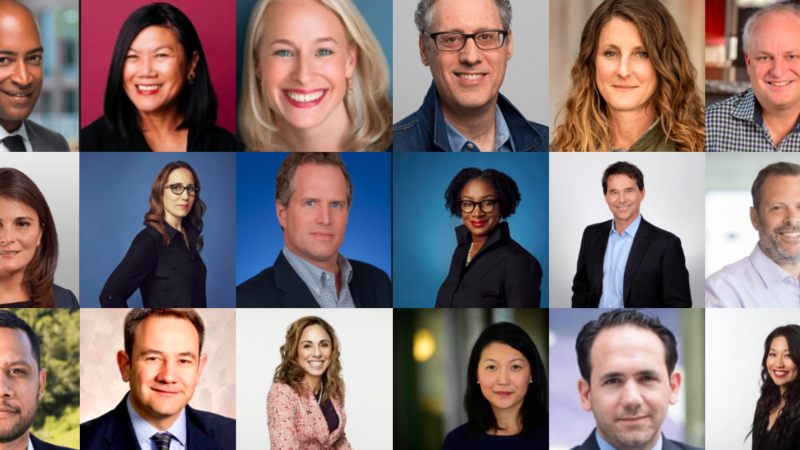Today we begin a new feature on the Thomson Reuters Institute blog, “Upfront & Personal”, a column that brings “the person behind the title” to the forefront in interviews with some of the most influential members of the legal community. The column is created and written by Rose Ors
Mark Chandler, Senior Vice President and General Counsel of Cisco Systems recently spoke with Rose Ors, the CEO and Founder of ClientSmart, about life-defining moments, what he’s passionate about and choosing other career paths.
Rose Ors: What life moments have defined you?
Mark Chandler: Professionally, there have been several occasions in my life where different individuals had confidence in my ability to do things that I didn’t think I could do. I listened to them each time and each time it turned out to be a good decision. The first person was the president of the California Public Utilities Commission who in 1978 offered me a job that I took even though it looked like it would delay my going to law school. Then in 1988, the CFO of Maxtor Corporation, a Fortune 500 disk drive manufacturer, hired me to my first in-house position as general counsel. I’d been working in a marketing job at another company and he flat-out said, “You don’t seem to know that much about law, but you seem bright enough and all the people from law firms are so legalistic, so maybe you can do the job.” It turned out I could do it. And then John Chambers trusted me to be his general counsel in 2001, and I had the privilege of doing that for 14 years for him. All these people’s advice were inflection points where I wasn’t sure I could do a job, but they trusted me and I trusted them.
Rose Ors: What is it that you think that each of these individuals saw in you that you didn’t see in yourself?
Mark Chandler: That’s a great question. You know, I think you’d have to ask them, but probably a certain practicality that tempers intellect. They felt I would get stuff done. I’ve never been tempted by the description I once heard a Frenchman use to describe problematic decision-making, “Well, that works in practice, but what about the theory?” If it works in practice, it’s good enough for me. And I have a persistence.
Rose Ors: You’ve lived and worked abroad. How did that experience influence your leadership style?
Mark Chandler: I lived in Germany in the 1980s, and I lived in France in the 1990s. Both of those experiences were critical in developing my ability to recognize that people may see things very differently from the way I do, and that it’s really important to listen in those situations.
[T]here have been several occasions in my life where different individuals had confidence in my ability to do things that I didn’t think I could do.
There are a whole set of cultural and intellectual presumptions that we each bring to the way we look at the world that are relatively arbitrary and based on our backgrounds. To each of us they seem like fundamental truths because they’re so fundamental to the way we see the world, and yet if you sit somewhere else, you can see things very differently. The ability to truly try to walk in other people’s shoes and channel how they are deeply feeling — not just what their opinion is, but why they feel the way they do — is really critical to any complex job. And then the most important step, to evolve your own opinion and learn from what you are hearing.
Rose Ors: Empathy, sort of encapsulates that ability, I think.
Mark Chandler: It’s the ability to say, “Okay, I can respect the fact that you see things differently from the way I do. Now let’s try to figure out a way for us to move forward together.” That’s what living abroad taught me.
Rose Ors: What do you find most personally rewarding about your work?
Mark Chandler: The chance to make a difference in the history of my company by building an incredibly strong, smart and able team, and to make a difference in the lives of the members of that team. I always hope that, in 30 or 40 years, the folks who have worked for me are able to say to their kids or their grandchildren, “You know, those years I spent at Cisco, they were some of the best years of my life.” If they can say that, then I feel I will have done a good job. It means a lot to me to know that I’ve given people career opportunities and the chance to do things they wouldn’t otherwise be able to do and to feel the satisfaction of doing great work. It’s very rewarding to create those opportunities. I also think it’s very important to hire people with different experiences. The happy coincidence of that is that in a large organization like the one I lead, a good outcome really depends on a very diverse set of skills and experiences that no one person can bring to the table.
Rose Ors: What are three things you are passionate about?
Mark Chandler: One is education and the difference it makes in people’s lives. An education gives people access to resources that help them develop their skills. It’s a passion I share with my family. Both my wife and my older daughter were teachers at Teach For America. Today, my wife runs an educational nonprofit called Raise DC in Washington, D.C. It’s exciting for me to see her bring different stakeholders in the school system together to figure out what works and what doesn’t work. I’ve seen the difference it makes for kids who’ve had the opportunity to get ahead of the curve and for the kids who haven’t.

Several months ago, I spent time reading to a group of second graders. Some followed the story beautifully while other barely recognized the letters. But every one of these children want to learn. They’re bright. But you know that some of them are going be crushed by the system that they’re in. And the arguments that, “Well, the problem is the neighborhood” or “The parents don’t care about the kids ” Those arguments are wrong. I know first-hand that the parents — even those in the roughest neighborhoods — care deeply about their children, and they want them to succeed and do well. We have an obligation to create a system that really values every child, or we’re failing as a society.
Rose Ors: I couldn’t agree more, and I applaud you and your family for your activism. What is another passion, Mark?
Mark Chandler: I’m really passionate about figuring out how to deploy and adjust to technological changes in a way that creates a good outcome for the world. My company is deeply a part of these changes so it’s an issue that’s very important to me. We need to not make the same mistakes we made at the end of the 19th century. That was another period of rapid technological change that had huge disruptive effects, and some were dire. We run that risk today.
That’s why I think the unexpected election results last year around the world are a real warning signal. We have to listen to why people are angry and alienated.
Rose Ors: Disenfranchised.
Mark Chandler: They’re unhappy with the way they view their opportunities and their lives. They’re doing things that, from the perspective of the leadership class, seem counterproductive. Those in positions to influence outcomes better start listening and responding to it.
Rose Ors: I know how passionate you are about this country and protecting its founding principles.
Mark Chandler: If there was one thing I wished I still had from my grandparents’ home, it was a little banner that they had hung on their wall that had a U.S. flag and said, “I am proud to be an American.” They got the banner when they became U.S. citizens a few years after they came to this country at the very beginning of the 20th century.
[I]n a large organization like the one I lead, a good outcome really depends on a very diverse set of skills and experiences that no one person can bring to the table.
I, too, am proud to be an American. I think that this country was and is a great experiment in people governing themselves, and in the people having a say and being able to change the direction of the country. If you’re a government official. you swear an oath to a constitution, not to a king, not to a dictator, and it’s something precious; and I’m passionate about protecting that system. I think now more than ever we have to be doing that.
Rose Ors: I also became a citizen shortly after coming to the U.S., so this resonates deeply with me. Now, for one of my favorite question — the “what if” question. In another life, what career would you would find exciting to pursue?
Mark Chandler: I went through the entire foreign service process when I came back from living in Germany. I had wanted to experience the excitement of living around the world and the challenge of dealing with new cultures. I also wanted the opportunity to make a difference in how countries interact with each other. But, I decided at the last minute to not pursue this option and instead to have continue my life in Palo Alto. I think entering the foreign service is probably something I would find a way to do if I could do it all again.
Rose Ors: And if you had gone that route, what do you think you would have found that still intrigues you about it?
Mark Chandler: I think I would have found a great personal satisfaction in learning to gain cultural and linguistic fluency in different contexts. I also think I might have found an ability in some small ways to make a difference in some of those same things we were talking about in terms of how we adapt to the changes that are happening now.







